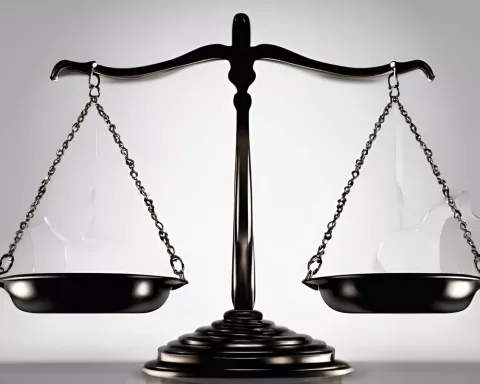The digital era brings both opportunities and threats, especially in the world of cybersecurity. African nations are making progress in instituting policies and legislative environments to counter threats and cultivate an environment conducive to digital innovation. South Africa is particularly exposed to cyber threats due to extensive internet usage. Reinforcing resilience in developing countries demands fostering international cooperation, sharing resources, and offering technical assistance. The South African Department of Communications and Digital Technologies founded the Cybersecurity Hub to coordinate the cybersecurity sector in private and civil society.
The Digital Defence Epoch: Tackling Obstacles, Embracing Prospects, and Fortifying Resilience. The digital era is teeming with possibilities but also poses new and formidable threats, especially in the wake of recent assaults. African nations are making remarkable progress, instituting enabling policies and legislative environments for cybersecurity, countering threats, and cultivating an environment conducive to digital innovation. Cybersecurity extends beyond a technical problem; it represents a societal issue.
Risk, Opportunity, and The City of Stellenbosch
On a cold dawn of November 20, 2023, an atmosphere of eager anticipation pervaded the scenic town of Stellenbosch, South Africa. A congregation of cyber defence aficionados, professionals, and scholars assembled at Protea Hotel Techno Park for the Threat Cybersecurity Conference. The feature speaker was the esteemed Deputy Minister of Communications and Digital Technologies, Hon Philly Mapulane (MP).
Stellenbosch seamlessly blends history and modernity, representing a pivotal point in South Africa’s cultural, economic, and political tapestry. This city has impressively metamorphosed from a bastion of Afrikaner culture and politics into a prominent financial centre. It is home to the headquarters of leading corporations like Naspers, Mediclinic, and Shoprite, and holds substantial interests in 16 of the JSE top 100 companies. Stellenbosch’s transformation is a shining example of resilience, adaptability, and reinvention – traits necessary in the world of cybersecurity.
The digital era, although beset with challenges, is teeming with possibilities. Critical services, businesses, and organisations are now deeply intertwined with the digital domain. ICT tools like e-government, e-commerce, e-education, e-health, and e-environment are recognised as engines for development, offering an efficient avenue for delivering a broad range of fundamental services.
The Dual-Edged Sword of Technology
In South Africa, these tools have played a crucial role in addressing historic development hurdles. However, the advent of information society carries a dual-edged blade, ushering in new and formidable threats. The irony of our digital epoch lies in the fact that while technology enables us to deliver more services at a faster pace, it simultaneously paves the way for cybercrimes, imposing risks on businesses and individuals.
With its high internet usage, averaging 10 hours daily, South Africa is particularly exposed. This extensive internet consumption makes South Africans prime targets for both international and local cybercriminals. The mounting threat landscape has rendered cybersecurity a strategic necessity, especially in the wake of recent assaults.
Recent attacks on crucial infrastructure highlight the universal and non-discriminatory nature of cyber threats. Institutions such as the United States’ Colonial Pipeline, the United Kingdom’s National Health Service, and South Africa’s National Defence Force and Transnet have succumbed to these attacks. With the rise in internet penetration, the risk of more complex attacks on our ICT infrastructure is a tangible reality, and the demand for robust cyber defenses has never been more pressing.
Shaping a Resilient Cybersecurity Landscape
Despite these obstacles, African nations are making remarkable progress in instituting enabling policies and legislative environments for cybersecurity. Nations like Nigeria, Kenya, and South Africa are leading efforts to enact comprehensive cybersecurity laws and policies. These frameworks aim to counter threats and cultivate an environment conducive to digital innovation.
The era of quantum computing, while filled with opportunities, also introduces significant risks, chiefly the ability to crack conventional encryption techniques. Weighing the advantages of technological progress against the risks they present necessitates a proactive and strategic approach to cybersecurity.
In the same vein, artificial intelligence (AI) presents a dual-edged situation. Although AI can significantly boost our cybersecurity defenses, it can also be exploited for harmful purposes, such as creating advanced malware or automating cyber attacks. Ensuring ethical and responsible use of AI, addressing potential biases in AI systems, and ensuring transparency and accountability in AI-driven security measures are paramount to utilising AI for cyber defense.
In the global cybersecurity context, reinforcing resilience in developing countries is more than an act of goodwill; it is a strategic imperative. These countries often lack the resources and infrastructure to battle sophisticated cyber threats, making them soft targets. Building robust cyber defenses worldwide demands fostering international cooperation, sharing resources, and offering technical assistance.
The intersection of biology and cybersecurity – the integration of biotechnology into our digital infrastructure – introduces unique vulnerabilities. The protection of this sensitive data necessitates specialized security protocols and rigid compliance and governance.
The emergence of the Metaverse, a collective virtual shared space, introduces new virtual vulnerabilities. Cybersecurity in the Metaverse extends beyond data protection; it’s about ensuring the safety and integrity of virtual experiences. This involves safeguarding personal identities, protecting virtual assets, and preventing malicious activities in virtual environments.
In reaction to these challenges, the South African Department of Communications and Digital Technologies founded the Cybersecurity Hub in October 2015. The hub, one of the National Computer Security Incident Response Teams (CSIRTs), aims to coordinate the cybersecurity sector in the private and civil society. The Hub has forged strong bonds with various sector-CSIRTs and launched national awareness programmes to better defend against cybersecurity risks.
In closing, cybersecurity extends beyond a technical problem; it represents a societal issue. The dialogues, deliberations, and decisions taken at the conference reverberate beyond the walls of Protea Hotel Techno Park, shaping the future of global cybersecurity. With resilience, adaptability, and proactive measures, we are not just preserving our systems but securing our way of life in an increasingly interconnected world.
1. What is the Cybersecurity Hub and what is its purpose?
The Cybersecurity Hub was founded by the South African Department of Communications and Digital Technologies in October 2015. It is one of the National Computer Security Incident Response Teams (CSIRTs) and aims to coordinate the cybersecurity sector in the private and civil society. The Hub has forged strong bonds with various sector-CSIRTs and launched national awareness programmes to better defend against cybersecurity risks.
2. Why is South Africa particularly exposed to cyber threats?
South Africa is particularly exposed to cyber threats due to extensive internet usage, which averages 10 hours daily. This extensive internet consumption makes South Africans prime targets for both international and local cybercriminals.
3. What is the dual-edged sword of technology?
The dual-edged sword of technology refers to the fact that while technology enables us to deliver more services at a faster pace, it simultaneously paves the way for cybercrimes, imposing risks on businesses and individuals.
4. How are African nations addressing cybersecurity threats?
African nations are making remarkable progress in instituting enabling policies and legislative environments for cybersecurity. Nations like Nigeria, Kenya, and South Africa are leading efforts to enact comprehensive cybersecurity laws and policies. These frameworks aim to counter threats and cultivate an environment conducive to digital innovation.
5. What challenges does the integration of biotechnology into our digital infrastructure introduce?
The intersection of biology and cybersecurity – the integration of biotechnology into our digital infrastructure – introduces unique vulnerabilities. The protection of this sensitive data necessitates specialized security protocols and rigid compliance and governance.
6. What is the Metaverse and how does it introduce new vulnerabilities for cybersecurity?
The emergence of the Metaverse, a collective virtual shared space, introduces new virtual vulnerabilities. Cybersecurity in the Metaverse extends beyond data protection; it’s about ensuring the safety and integrity of virtual experiences. This involves safeguarding personal identities, protecting virtual assets, and preventing malicious activities in virtual environments.








